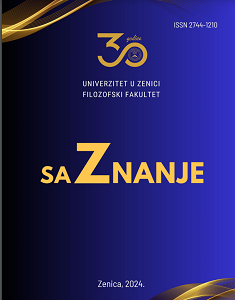KOLEKTIVNA ILI INDIVIDUALNA KRIVICA I ŠTA NAKON ZLOČINA?
COLLECTIVE OR INDIVIDUAL GUILT AND WHAT HAPPENS AFTER THE CRIME?
Author(s): Bernard HarbašSubject(s): Law and Transitional Justice, Social Theory, Social Norms / Social Control, Sociology of Politics, Politics of History/Memory, Politics and Identity
Published by: Filozofski fakultet, Univerzitet u Zenici
Keywords: collective guilt; individual guilt; crime; action; law of nature; Hannah Arendt; action;
Summary/Abstract: The paper deals with Hannah Arendt's attitude towards the concepts of collective and individual guilt with a special emphasis on her understanding of the discontinuation of criminal practice. The basic theoretical premise of Arendt's philosophy consists in the critique of work based on necessity and unfreedom. In contrast to work and production as non-free activities, she emphasizes action as a form of free activity that consists of communication between different but equal individuals. For Arendt, work and production are inherent in totalitarian political systems by their very nature. The basis of the totalitarian regime is automated and bureaucratic action, which is best demonstrated in the unquestioning execution of orders and respect for hierarchy. It identifies totalitarian projects with the evolutionary laws of nature, according to which the means is violence whereas the goal is survival of the fittest. Arendt attributes this type of relationship, characterized by the "absence of thought", to every criminal enterprise, such as mass murders, camps. This inability to criticize can be attributed to the individual or individuals, but not to the collective. For Arendt, the term collective guilt is a skillful concealment of individual responsibility and guilt.
Journal: saZnanje
- Issue Year: 4/2024
- Issue No: 4
- Page Range: 526-536
- Page Count: 11
- Language: Bosnian

